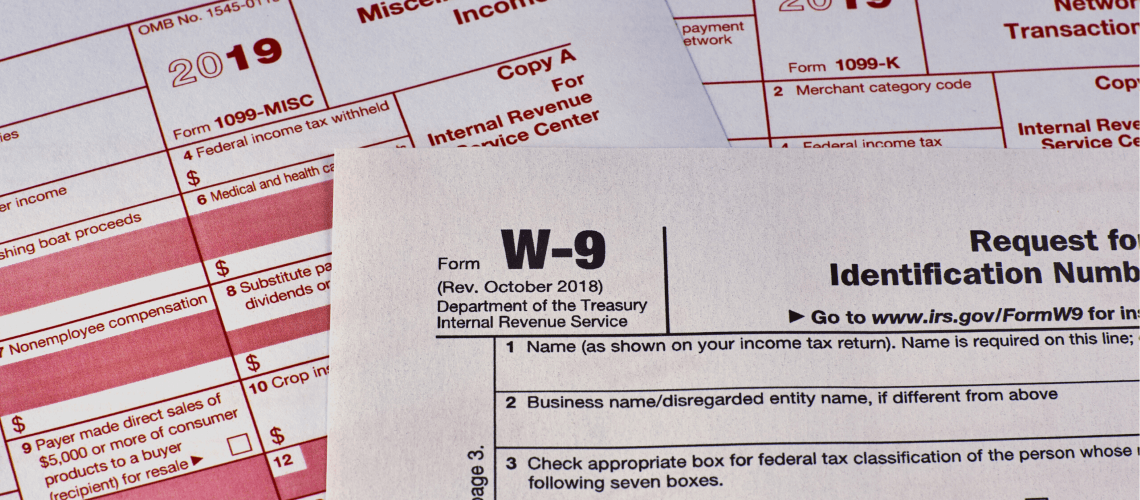The most common form people receive to report income is a W-2. We all know the W-2 is a form filed by your employer showing how much they paid you. Another common form is the 1099. A 1099 form needs to be filed when paying non-employees for certain business-related services, and it’s specifically meant to safeguard self-employed people from under-reporting their income.
Types of 1099 Forms
There are many different types of 1099s that can be filed, so here is a brief overview of some of the more common ones:
- 1099A – income from cancelled mortgage debt
- 1099C – income from cancelled credit card debt
- 1099-DIV – income from dividends
- 1099G – income from state, local or federal government (such as unemployment)
- 1099-INT – if you earned more than $10 from a bank, brokerage, or other financial institution
- 1099R – retirement income
- 1099-MISC – if you earned income that doesn’t fit into any other 1099 category
1099-MISC & When To File
An individual may receive some of the 1099 forms above, and that information should be included on your tax return. However, an individual does not file a 1099 for services performed, the business that is paying for the service needs to do that. Business owners will likely make several payments over the year that fall into the 1099-MISC catch-all category. If your business made a payment of more than $600 in any of the following categories, you need to file a 1099:
- Services performed by an independent contractor or others (not employees of your business)
- Prizes and awards (if paid to employees, include in their W-2)
- Rent
- Backup withholding or federal income tax withheld
- Crewmembers of your fishing boat
- To physicians, physicians’ corporation or other supplier of health and medical services
- For a purchase of fish from anyone engaged in the trade or business of catching fish
- Crop insurance proceeds
- Payments to an attorney
A business is not required to file a 1099 if the payment was made to another business that is incorporated (excluding medical or legal services) or if the sum of all payments made to the person or unincorporated business is less than $600 in one tax year.
Services Performed by Independent Contractors
Since the “services performed by an independent contractor” is so broad, here are examples of those services:
- Professional fees including attorney, accountants, architects, contractors, engineers
- Parts or materials to perform services
- Commissions paid to nonemployee salespersons
- Fees or travel reimbursement for which the nonemployee did not account to the payer
- Nonemployee entertainers
- Exchanges of services between individuals in the course of their trade or business
- Taxable fringe benefits for nonemployees
- Gross oil and gas payments for a working interest
- Payments to insurance salesperson
- Directors’ fees
- Commissions paid to lottery ticket sales agent
Generally, if you owe someone a 1099 form for completing any of the services listed above, you must send it to the payee by the end of January so they can include the income on their tax returns. Failing to file a 1099 will result in penalties for each form not sent. Your hb&k advisor can assist both with tracking 1099 payments through the year and with getting them sent to payees in time. Please contact us if you need assistance in this area.
Carly Corte, MAcc - Analyst
A member of our audit department, she performs internal control analysis, audits, compilations and reviews for small companies, government agencies, 401k’s and not for profit organizations. Email Carly with any questions.


